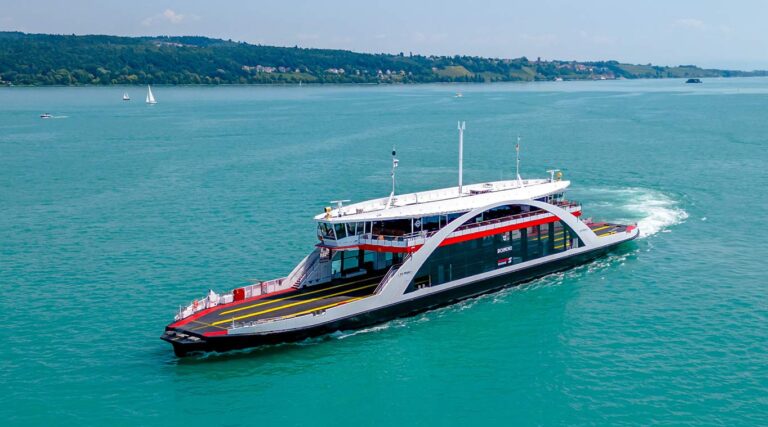Europe’s first inland ferry powered by Rolls-Royce high-speed mtu Series 4000 gas engines has begun operating on Lake Constance in Germany.
The Richmond ferry will cross the lake eight to nine times a day, carrying up to 700 passengers and 64 cars from Meersburg to Constance and back. It joins a fleet of five other ferries that are all powered by mtu engines.
Each of the two eight-cylinder mtu Series 4000 engines provides 746kW of power and operates with less noise and vibration than a diesel engine while keeping emissions below the current IMO III nitrogen oxide limits, even without exhaust gas aftertreatment. A multipoint gas injection system ensures dynamic acceleration behavior and the turbocharging system enables sufficient power reserves throughout the entire speed range for difficult driving maneuvers. In the future, the ferry operator hopes to run the ship on bio-liquified natural gas (LNG), making it completely climate neutral.
Each engine has its own fuel tank, able to carry up to 18m3 of LNG – enough to keep the ferry running 24 hours a day for a week. The tanks maintain the LNG at -160°C so that it remains liquid.
When the fuel is needed to power the ship’s drive system, the gas processing unit (GPU) brings it back into a gaseous state before it’s fed through to the two separate engine rooms. Gas regulation units (GRUs) then ensure the correct pressure for the gas to enter the engines themselves, thus supplying the energy for the two propellers and the generators.
The ship’s captain, Oli Hermann, said, “The ferry seems to drive like any other. Every ferry has its own peculiarities and drives a little differently. Whether there is a diesel or a gas engine in the engine compartment, I don’t notice that.”
Read more of the latest ferry and cruise updates from the electric and hybrid marine technology industry, here.



